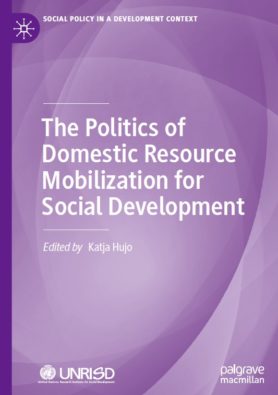The Politics of Domestic Resource Mobilization for Social Development pp 109-138
In this chapter, Moore and Prichard provide two different kinds of answers to the question of how governments of developing countries can increase tax revenues. First, they discuss seven potential revenue sources that governments of developing countries tend to use less than they should. Mining, tobacco and alcohol, the incomes and wealth of rich people, and property are typically under-taxed. Tax exemptions for investors and the use of transfer mispricing in international economic transactions can both be curtailed. There is considerable scope to improve the effectiveness of and collections from value added tax (VAT). Second, they examine the potential for increasing the tax take through changing domestic and international tax policies—including a shift to taxing companies on the basis of business turnover rather than profit.
Read the working paper version here.
